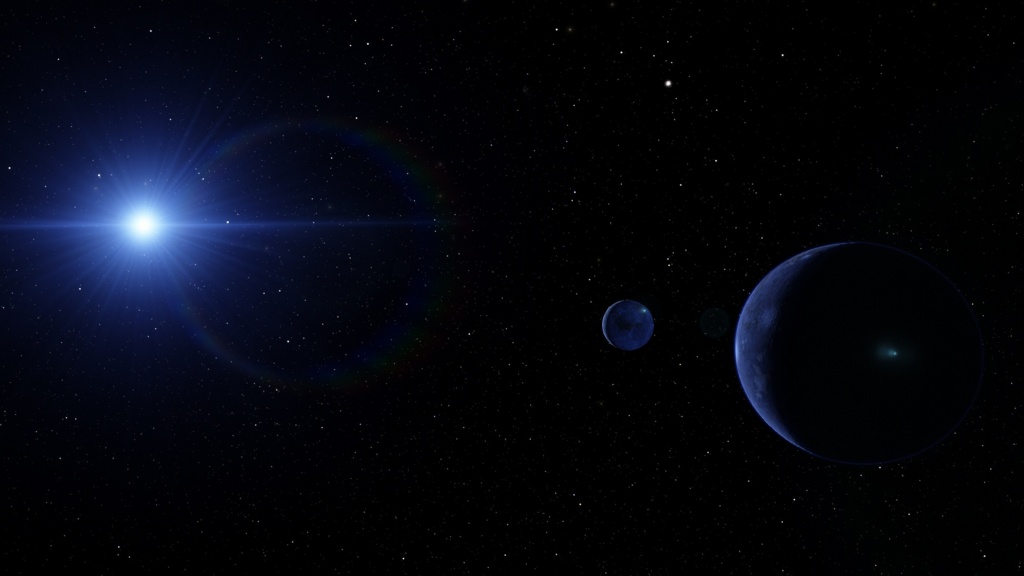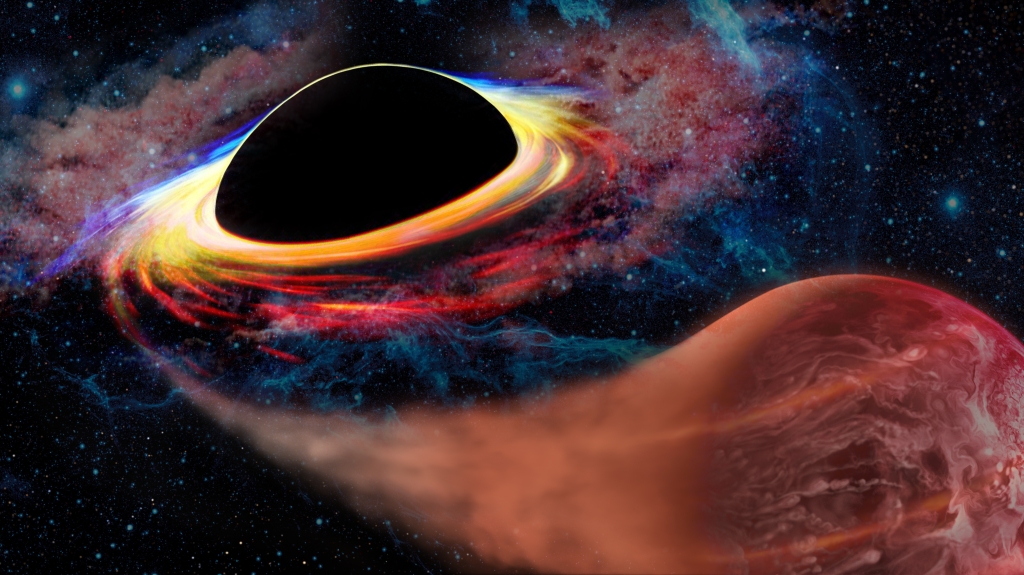Superfact 2 : Some Things Cannot Be Known
Some things cannot be known. There are things in mathematics and about our physical world that we know can never be known. For example, we can’t simultaneously know both the exact speed and the exact position of small particles (Heisenberg uncertainty principle). This is not because of a limitation of our instruments. It is a fundamental property of the Universe. But there are more examples of unattainable knowledge. In mathematics there are true statements that can never be proven.
“This”Some Things Cannot be Known” is the third post on my super-factful blog. As mentioned, the goal of this blog is to create a long list of facts that are important and known to be true, yet either disputed by large segments of the public or highly surprising or misunderstood by many. They are facts that are so unnecessarily controversial or astounding that I refer to them as super-facts.
This post is about a fact that may be highly surprising to many. Science knows a lot. People without a solid education in science are often surprised when they find out about some of the amazing things we actually do know.
For example, just by studying the light from a distant star, we can determine what elements it is composed of. The star may be composed of 71% hydrogen, 27% helium, 1% Lithium, and 1% other elements, and we can know that just from its light. We can also determine its temperature, the distance to the star, how it is moving compared to us, where it will be 2.5 million years from now, roughly its age and longevity, and more. 150 years ago, we could not have dreamed of this capability.

However, there are also many things we don’t know, and what may come as a big surprise, we know that there are things we can never know, no matter how advanced science becomes. Infinite experimentation, super intelligence, a quintillion super geniuses, infinite time, we simply cannot acquire some knowledge. The universe itself forbids some knowledge. It also means that the statement “nothing is impossible” is false.
At least my natural reaction to such a claim is, “come on you can’t say that with certainty”, and I expect many others will feel the same. However, the reason some knowledge will never be attainable is that physical laws as well as mathematics and logic forbid some knowledge. Some things are not meant to be known. I will give four examples in the four sections below: the event horizon, the Heisenberg uncertainty principle, beyond the observable Universe, and Gödels incompleteness theorem.
The Event Horizon of a Black Hole
A black hole is a region of spacetime where gravity is so strong that nothing, including light, can escape it. The boundary of no escape is called the event horizon. If you pass the event horizon you cannot come back out no matter how much energy, you expand. Nothing can escape, no matter, no radiation, not light or other electromagnetic radiation, and no information. Nothing at all can escape. The curvature of time and space itself forbids it.
I should add that right at the event horizon, there is so called Hawking radiation, but without complicating things it is not the same thing as escaping a black hole. You can guess from physical laws what might be inside, but you can never observe and report what is inside to planet Earth.

I would also like to add some basic information about black holes. Some black holes are formed when large stars die and collapse. These black holes are estimated to have a mass of five to several tens of solar masses. However, there are also super massive black holes that reside in the center of galaxies.
The super massive black hole at the center of our galaxy, the Milky Way, is called Sagittarius A* and is estimated to have a mass of four million times the mass of our sun. The largest known supermassive black hole TON 618 is 66 billion times more massive than our sun. There are an estimated 100 million black holes in our own galaxy, the Milky Way. One interesting fact is that celestial objects can orbit a black hole, just like planets orbit the sun, but as you get too close you will rush, at the speed of light, into the depths of the black hole.
The Heisenberg uncertainty principle
The Heisenberg uncertainty principle states that it’s not possible to know the position and momentum of an object with perfect accuracy at the same time. Another way of saying that is that we cannot know both the position and speed of a particle, such as a photon or electron, with perfect accuracy. The formula is: dX * dP >= h/4pi , or uncertainty in position (dX) times uncertainty in momentum (dP) is larger than half of Planck’s constant. There is also an energy and time precision limit : dT * dE >= h/4pi.
These equations basically means that there are no perfectly exact measurements or knowledge. Everything is a bit fuzzy. Planck’s constant is very small, so Heisenberg uncertainty principle does not matter for everyday objects, but it matters when sizes are very small (positions, energies, etc.) Note, Heisenberg uncertainty principle is not because of a limitation of our equipment, but a limit set by a law of physics. It is a limitation set by the Universe if you will.

Beyond the observable Universe
The observable universe is a ball-shaped region of the universe consisting of all matter that currently can be observed from Earth or its space-based telescopes. The radius of the observable universe is 46.6 billion light-years. The size of the observable universe is growing. Unfortunately, at those distances, space itself is stretching/expanding faster than the speed of light. Since no signal or information can travel faster than the speed of light we are losing, not gaining, celestial objects from the observable universe.
In the past we’ve lost many galaxies this way. Since the expansion is accelerating, we will keep losing more galaxies beyond the boundary of the universe and some galaxies were always lost (with respect to observation). I can add that the universe may be infinite.

If we are wrong about the fact that the expansion of the universe is accelerating, then perhaps we can observe more galaxies in the future. But if not, then there are galaxies that we have never observed, galaxies that we can never observe, and there are galaxies that will become unobservable in the future. Depending on the size of the universe we may never be able to observe more than an infinitesimally small portion of the universe. Again, the universe is stopping us from knowing something.
Gödels incompleteness theorem(s)
The theorem states that in any reasonable mathematical system there will always be true statements that cannot be proved. In other words, to find a complete and consistent set of axioms for all mathematics is impossible. There are forever hidden truths in mathematics. For the case of natural numbers this means that there will always be statements about natural numbers that are true, but that are unprovable. I can add that there is also a second incompleteness theorem that states that a formal system cannot prove that the system itself is consistent. Basically, there are limits to mathematics set by logic. And some things cannot be known.



I like how optimistic you are, Thomas, “then perhaps we can observe more galaxies in the future” – maybe a few left in our lifetime, we the technology we have, hopefully more for our children. But a lovely thought.
LikeLiked by 1 person
Yes there is a good bad with the expansion of the Universe not accelerating. On one hand we’ll get to see more galaxies, well assuming we still have the technology. On the other hand, then the Universe may eventually stop expanding and start shrinking followed by the big implosion. By the way I am so glad you are commenting. I noticed a problem. Each comment requires my approval and I don’t know why. If I can’t figure out the setting I have to ask the Happiness Engineers.
LikeLiked by 1 person
Log into Admin.
Go to Settings -> Discussion Settings
Scroll down to Before A Comment Appears
Unclick “comments must be manually approved.”
Done.
LikeLiked by 2 people
Thank you so much Patricia for this information. I should say someone else pointed this out to me too so it is already taken care but it certainly would have been invaluable if that hadn’t happen. I really appreciate you helping me. No Happiness Engineers needed.
LikeLiked by 1 person
assuming wp hasn’t decided to change things around since I last used it, I’ve often found them helpful when I got to wordpress.com/help & then choose ‘chat’ — if they’re too busy, chat’s at times been closed, but when I checked back later, it would be open. when I tried asking them q’s via email, they usually, but not always replied. and beforehand, I would take lots of screenshots to show them exactly what I was talking about, & load them up to my site’s media library so they could access them. then afterwards I’d just trash the screenshots
LikeLiked by 1 person
It’s been up and down with the Happiness Engineers for me. In the past I’ve had good luck getting hold of a person but I tried contacting them a few weeks ago and no responded to me for 90 hours, despite me trying to use the chat as well as email. It was crickets. It turned out I was far from the only one who couldn’t talk to them. But like you say, if you take screenshots and make it easier for them to help you it is much better.
LikeLiked by 1 person
I’m especially partial to unknowables, Thomas. Math is beyond me (even the knowable is an unknowable. Ha ha). But I love learning about space and black holes are especially intriguing. I’m glad that there are still mysteries in our universe and so much to ponder. Thanks for the fun post.
LikeLiked by 1 person
Ha ha “….knowable is an unknowable” that was clever and funny. Speaking of math, it is fascinating that there are truths in mathematics that can never be proven. True facts that will forever elude us. It is not just limitations of the Universe and the laws of physics but in math itself. Like you I love learnng about space and I find black holes especially intriguing, and I agree I’m glad that there are still mysteries in our universe and so much to ponder.
LikeLiked by 1 person
It makes sense to me, Thomas. I think that humans overestimate our intelligence. Many of us quite vehemently think we know everything. The state of the world is a good indication that we are far from that! Love your posts.
LikeLiked by 1 person
Thank you Diane. Like you say curiosity is really important. It can overcome ones assumptions and bring forth humility.
LikeLike
Thank you so much Diane. Overestimation of what one understand is indeed a very common affliction. It is hilarious when you see people who knows almost nothing about a topic explain to the experts in the field how it really works and how it really is, and yet it happens all the time. It seems like everyone has a little bit of that. Humility is important.
LikeLiked by 1 person
True. And curiosity goes a long way too. 🙂 You have plenty of that!
LikeLiked by 1 person